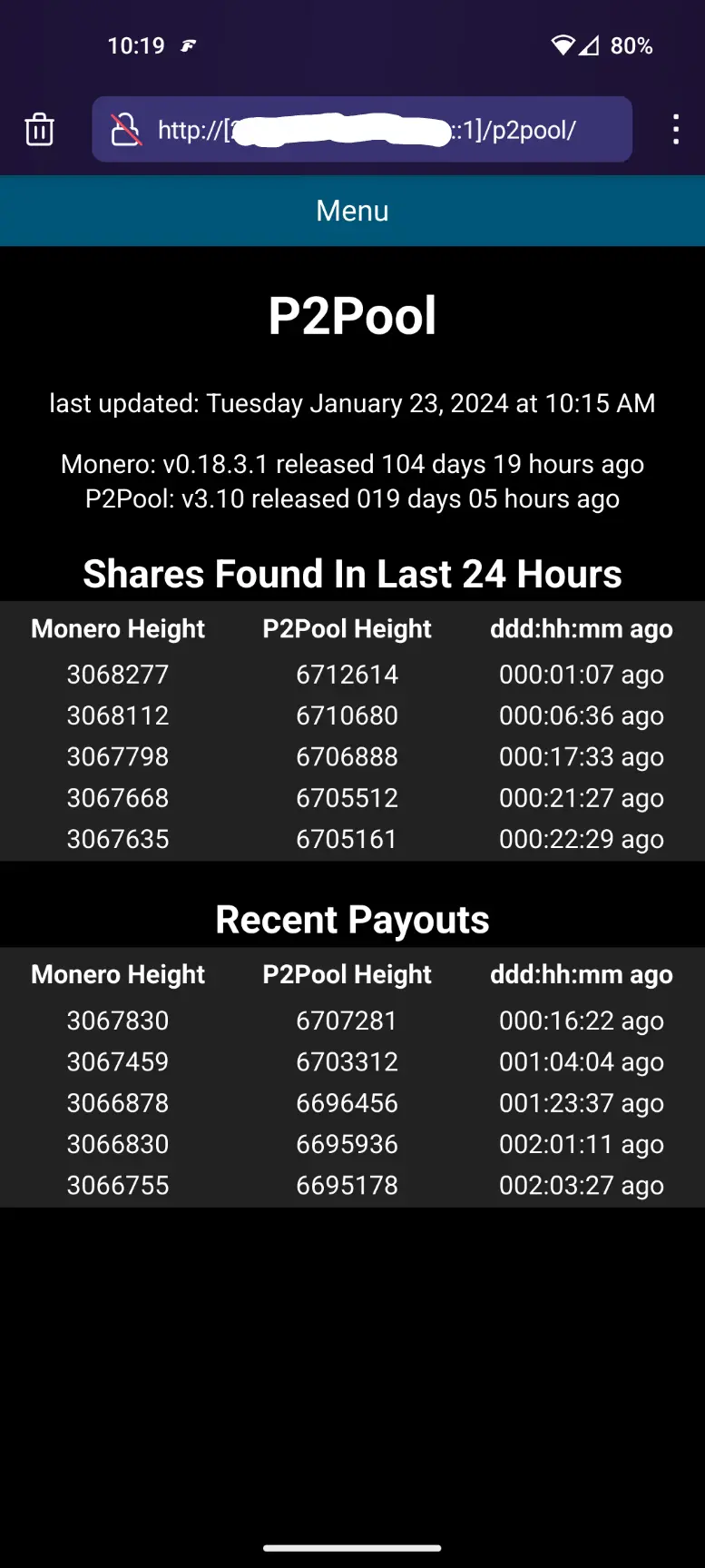Ipv6 addresses now resolve directly from the address bar. Before it was treated as a search string.

How did people visit sites using ipv6 addresses before this? Ipv6 has been around for years. Seems like a slow pickup
Well, on desktop it worked. So you could do it that way. But on mobile, what you had to do was go to a website like Google, add it as a bookmark, and then edit the bookmark and change the web address from Google to the IPv6 address.
Crazy. Thanks 👍
I wonder why this wasn’t mentioned in the changelog. Seems substantial
Probably because most people are not accessing routers and web servers through their IPv6 addresses and instead they are using IPv4s like 192.168.1.1. I mean, come on, who does that?
Yeah, typing an IPv6 address on my desktop I’d annoying enough, and way worse on my phone.
It should still be supported, just not called out specifically.
That patch was my only contribution to Firefox, and I didn’t research how to update the user-facing changelog. When 122 hits my phone I’ll ping the bugs, to notify the 20 nerds who actually care about the problem. Typing IPv4/IPv6 literals is a pretty niche feature on the modern web.
Currently https://play.google.com/store/apps/details?id=org.mozilla.firefox says “Version 121.1.0, Updated on Jan 19, 2024”
Wow. Awesome changes on firefox android. Well going firefox.
What has changed on android? Android isn’t mentioned in that post
It’s not in the linked article, but it was part of it in the beta release notes. Now it’s on the dedicated Android release notes page ():
- Firefox for Android can now be set as the default PDF reader.
- Firefox for Android now supports enabling Global Privacy Control. With this feature, Firefox informs websites that the user doesn’t want their data to be shared or sold. This feature is enabled by default in private browsing mode and can be enabled in normal browsing in Settings → Enhanced Tracking Protection -> Tell websites not to share & sell data toggle.
- To reduce user fingerprinting information and the risk of some website compatibility issues, the OS version is now always reported as “Android 10” in Firefox for Android’s User-Agent string.
Global Privacy Control
Isn’t this basically the “Do Not Track” thing, so it basically just gives websites more information about you? I guess allowing feature parity between private and non-private mode helps reduce that though.
I don’t trust websites to respect that setting whatsoever.
On the note, your final bullet point is awesome. Give websites as little information as possible.
There’s a link at the top: https://www.mozilla.org/en-US/firefox/android/122.0/releasenotes/.
Firefox now ships with a new .deb package for Linux users on Ubuntu, Debian, and Linux Mint.
Did they go back on Snap?
The Snap is by Ubuntu (and presumably will still be the way Firefox is installed by default on Ubuntu). I think that this is for people who’d prefer not to use the Snap, allowing them to install the
.debdirectly from the source.Not sure why that’s a new thing. I’ve been using Mozilla’s PPA since canonical introduced this snap-by-default crap back in 22 I think.
I don’t think that PPA was by Mozilla. I believe it was by Ubuntu contributors who volunteered to package Mozilla software (and possibly even the people who used to package the Deb before it was turned into a Snap installer).
I wish Firefox stop re enabling the 2 search bars after every update
Log a bug if you want to see it fixed.
How do I log a bug?
I… don’t have this problem, and I’ve been on Firefox for well over a decade. I have used the combined address/search bar since it was an option.







